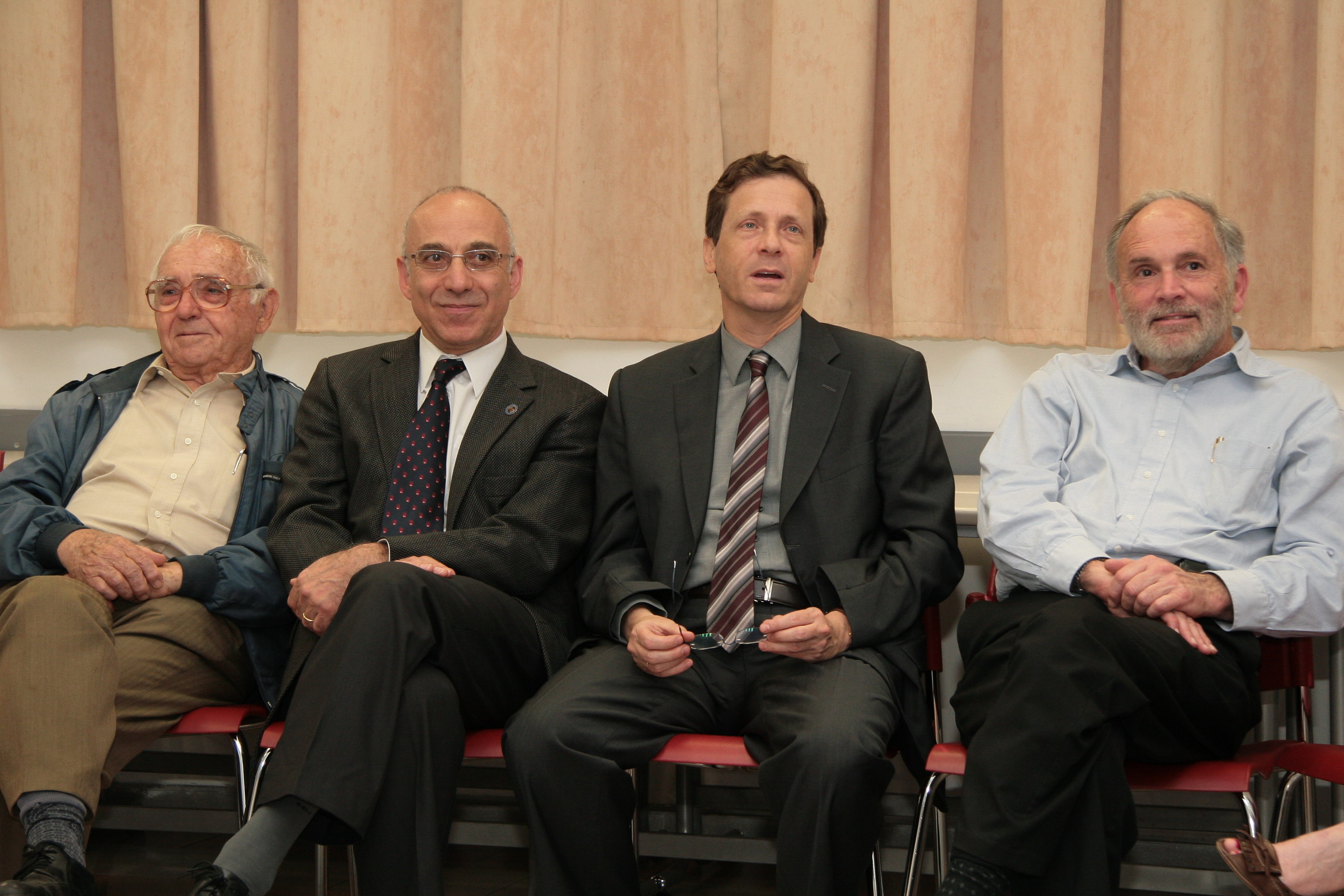"The State of Israel must integrate more Arabs and Haredim into the labor market, and the issue is a high priority." This is what the Minister of Welfare, Yitzhak Herzog, said last week when he visited the Center for Pre-Academic Education at the Technion

"Ahead of the hearing we had in preparation for Israel's admission to the OECD, we put the emphasis on providing higher education to these two sectors, so that they can work in the future," added Minister Herzog. "The OECD will accept Israel because of its strengths, but we must also address our weaknesses. Many in the ultra-orthodox sector have already come to the realization that it is impossible to live only on allowances."
An ultra-Orthodox student told the minister that today he is already studying at the Faculty of Industrial Engineering and Management, thanks to the pre-academic center at the Technion. "When I came here I didn't know anything, but all the teachers at the center helped me and supported me," he said. "Study in the yeshiva in the past also helped me, because it is based on a lot of self-learning. When we came to the Technion, we were a little apprehensive, but we were welcomed with open arms."
A student from the "Horizons for Industry" program - Yehuda Zisafel's initiative that equips young men and women who have graduated from the military, without a high school diploma, to study in higher education institutions - said that without the program his life would have been hopeless. "My father is a drug addict, I have no contact with my family, I studied in institutions, mainly in kibbutzim," he said. "I served in the IDF, I was discharged, and then I learned about the program from the unit for discharged soldiers, and that's how I ended up at the Technion."
The minister also received a report on the program "Working from three to five", in which Technion graduates across the country help high school students reach five units in mathematics in matriculation, thus opening the gates of higher education to them.

5 תגובות
A 12-year-old skit as written today:
http://www.youtube.com/watch?v=6tMQ2Wg9q3E&feature=player_embedded
R.H.: Believe me, no one "allows himself to become unemployed at the expense of allowances". The allowances given today are really not enough for that. Those who cancel, cancel due to lack of choice.
Nahum, the one who lives on another planet is you. Indeed, the ultra-Orthodox are discriminated against in Israel - for the better. All over the world they must work because there is no discrimination and no one will take care of them and not because there are more job options. In Israel, on the other hand, they allow themselves to be idle at the expense of the allowances. If they cut the allowances the only ones who will starve are the idlers who don't want to work.
Why does a university student have to work to earn a living or pay attention to his parents? Why doesn't he receive a pension even though he pays taxes, serves in the reserves and from the state's point of view he is a safe investment for the long term since he will be productive and pay taxes all his life? The ostrich of justice?
I read Power's response and am amazed. The responder just lives on another planet.
The allowances are barely enough for bread and milk. The cut in allowances will encourage a few tens of allowance recipients who are able to do so, to go out and work. It will also result in hundreds of thousands of citizens unable to find work, literally starving. And I'm not talking about recommendations.
Do you have any idea how many Haredim, for example, are trying to find a job and can't? There are many reasons for this, and the responsibility is divided more or less equally between the rabbis of the sector and the heads of state. Abroad, for example, the ultra-Orthodox don't learn more specialized subjects than they do here, and their English is not much better than the ultra-Orthodox here, since they mainly speak Yiddish. Even so, everyone there works, and you know why? Because there are more opportunities and possibilities to find a job, and there the state does not mislead them and the members of their sector.
It is clear that this does not absolve the ultra-orthodox sector itself from responsibility, and there is a great deal to improve in the field of increasing the sand studies in the private educational institutions of the sector, and encouraging young men who, after several years, come to know that they have not been deprived of the material of the elites and the greats of the next generation - to study a profession, and perhaps even establish a kind of high school yeshiva Colleges/university meetings for such young people. Still, this does not absolve the state of its responsibility to do what is assigned to it.
The allowances of any kind If any sin, a negative incentive to go to work, the allowances must be reduced gradually, NIS 20 per month until they are abolished, this action will make people go to work and improve their standard of living.